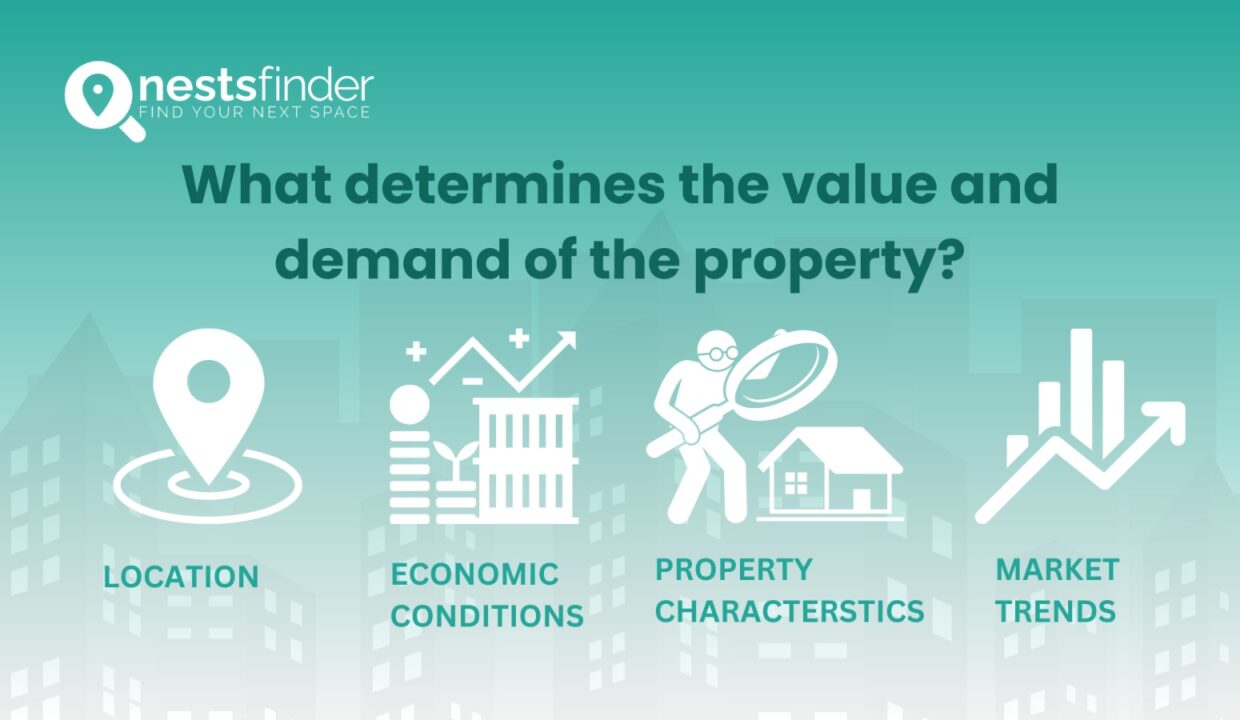What determines the value and demand of the property?
#realestate #property #propertydemand #realtor
Historically, real estate has been a popular investment option for many people around the world, whether they were buying it for their own use or for investment purposes. Real estate purchase or sale decisions involve a number of interrelated dimensions of human behavior and decision-making skills. It takes into account not just a property’s physical characteristics but also factors like feelings, social standing, safety, closeness, etc.
The many different ways that people make judgements and the many different things that affect their decisions are important elements in influencing the price and demand of properties. Real estate psychology is a difficult process of evaluating and measuring the various aspects that may affect how one goes about buying or selling properties.
The value and demand of a property is determined by various factors such as location, supply and demand, development in the surrounding area, the condition and age of the property, local market conditions, amenities and services available, economic factors such as interest rates and inflation, and the overall state of the economy. Additionally, the perception of the property by potential buyers or renters can also impact its value and demand. Real estate valuation is a complex process and often requires the expertise of industry professionals such as appraisers and real estate agents. Understanding the various factors that drive property value and demand can be helpful for both buyers and sellers in making informed decisions.
Several factors determine the value and demand of a property. Here are some key factors:
Location
The location of a property is one of the most important factors affecting its value and demand. Desirable locations, such as proximity to city centers, good schools, amenities, transportation hubs, and natural attractions, tend to have higher demand and therefore higher property values.
Supply and demand
The balance between the supply of properties and the demand for them plays a significant role in determining their value. When there is high demand and limited supply, property values tend to increase. Conversely, when there is an oversupply of properties relative to demand, values may decrease.
Economic conditions
Economic factors, such as employment opportunities, income levels, and economic growth in a region, can influence property values. Strong economies with job growth and higher income levels often lead to increased demand for properties and higher values.
Property characteristics
The physical characteristics of a property, including its size, condition, layout, amenities, and quality of construction, can impact its value. Well-maintained properties with desirable features and modern amenities tend to command higher prices.
Market trends and investor sentiment
Overall market trends, including buyer preferences and investor sentiment, can influence property values. Factors such as interest rates, government policies, and market speculation can create fluctuations in demand and impact property values.
Zoning and regulations
Zoning laws, building restrictions, and local regulations can affect the value and demand for a property. For example, properties with favourable zoning for commercial development or those located in areas with lenient building regulations may have higher demand and values.
Future potential
Anticipation of future developments, such as infrastructure projects, new businesses, or improvements in the surrounding area, can impact the value and demand of a property. Properties with perceived growth potential often attract higher demand from investors.
It’s important to note that these factors can vary depending on local market conditions and individual preferences. Therefore, a comprehensive analysis of these factors is crucial when assessing the value and demand of a specific property.
Conclusion
In conclusion, the value and demand of a property are determined by a combination of factors such as location, supply and demand dynamics, economic conditions, property characteristics, market trends and investor sentiment, zoning and regulations, and future potential. Each of these factors contributes to the overall desirability and market value of a property. Understanding and considering these factors is essential for individuals and investors to make informed decisions when buying or selling real estate. By evaluating these factors, one can gain insights into the potential for appreciation, rental income, and long-term growth, ultimately helping them secure a valuable and promising asset for their future.




